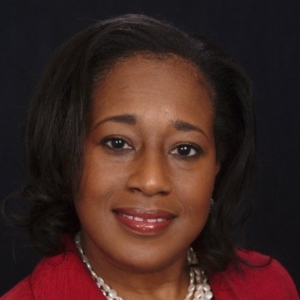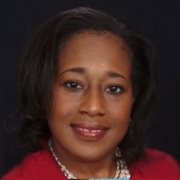Thought Leader: TJ Huntley, Managing Director, Internal Audit, Citi
 This month, TJ Huntley, Managing Director of Internal Audit at Citi, celebrates 22 years of working in the financial services industry. She remarked, “This industry allows you to make a difference with customers and clients and simultaneously engage in various analysis of key risk, independently assess the design and operating effectiveness of key controls, and engage in various operational process initiatives.”
This month, TJ Huntley, Managing Director of Internal Audit at Citi, celebrates 22 years of working in the financial services industry. She remarked, “This industry allows you to make a difference with customers and clients and simultaneously engage in various analysis of key risk, independently assess the design and operating effectiveness of key controls, and engage in various operational process initiatives.”
As the financial services industry has evolved over the years, so has Huntley. Throughout her career, she has always embraced change and new challenges. This, she noted, is a key component of professional growth and development. Huntley advised, “You cannot survive as a leader if you are not equipped to handle changes that may be required in your strategy, vision, or leadership style. Innovation requires change.”
Huntley added, “You have to believe that you can contribute at a fast pace in an environment full of change, like the financial services industry, where so much is happening from a regulatory perspective.”
Navigating the Regulatory Environment of Financial Services
According to Huntley, the challenges presented by regulatory compliance are currently a key focus for senior level executives in financial services. “Right now, various organizations are going through a series of transformations, looking at what they do and figuring out how to do it better. Having a strong and independent internal audit department is important for interpreting, assessing, and identifying the gaps within an organization, and advising the boards on the risks and independent audit assessments associated with different business practices.”
Regulators have what Huntley referred to as heightened expectations for large national banks and federal savings associations to strengthen the minimum expectations and force organizations in the financial services industry to look at their risk management practices, which include assessing the controls to mitigate risk and demonstrating sustainability of those controls. “These expectations are driving the actions of all the critical banks,” said Huntley.
Huntley emphasized the importance of having the right people performing the right tasks to meet client demands with innovative products and solutions. “The big strain in this environment is when you look at the demands being placed on the resources, you have to constantly look at your capacity and assess whether or not you have the right people in the right roles to be successful,” explained Huntley.
Keys to Success in the Financial Services
Being flexible and open-minded about your career trajectory are two key components to success and longevity in the financial services, according to Huntley. She noted, “I was always willing and eager to go out and experience the industry from various locations. Gaining global exposure really helps you become relevant and stay current.” Huntley added, “When you do this, it gives you the ability to look at business practices and products from an international perspective and understand the global impact of your decisions.”
Accepting new challenges and having the confidence to step outside your comfort zone is also something that Huntley believes is critical in the financial services. “Part of growing is going after new opportunities and trusting that you have the competencies to learn as you go,” said Huntley. She added, “Know who you are, be confident, and know how to surround yourself with individuals who enhance your capabilities.”
Using Networking as a Powerful Career Advancement Tool
Cultivating younger generations of female leaders through her work with the Citi Women’s Leadership Development program at UCLA’s Anderson School of Management is something that Huntley takes a lot of pride in.
One of the key areas Huntley focuses on with these future women leaders is how to form meaningful connections through strategic networking. She explained, “You must invest time with an advocate, someone that understands the value you bring to the organization and will be in positions to recommend you for significant projects or assignments. Also, you have to create a network of several individuals whom you trust to give you direct feedback, outside of the reporting line.”
Huntley continued, “Trying to balance work and personal challenges is tough, so make sure you have someone outside of the workplace that can be a confidant to help you work through difficult decisions that will inevitably arise.” According to Huntley, carving out your network in this way is important, especially as you advance in your career.
“Networking is a give and take,” noted Huntley. “You have to be able to support your network and engage in critical initiatives to help others. It is important to reach back and bring others along with you.”
Looking Ahead
When asked about what’s next for Huntley, she replied, “After 22 years in the industry, I continue to seek out opportunities to expand my skill sets. My next role will allow me to expand outside of the independent auditor role and move into a Compliance role within the industry. Ten years from now, it would be great to be considered for a board role that allows me the opportunity to contribute in a different capacity to the industry.”
According to Huntley, you have to choose the work-life balance that works for you. “If the equation changes,” she explained, “you have to be okay with shifting yourself to fit the new equation.”
By Michelle Hendelman











